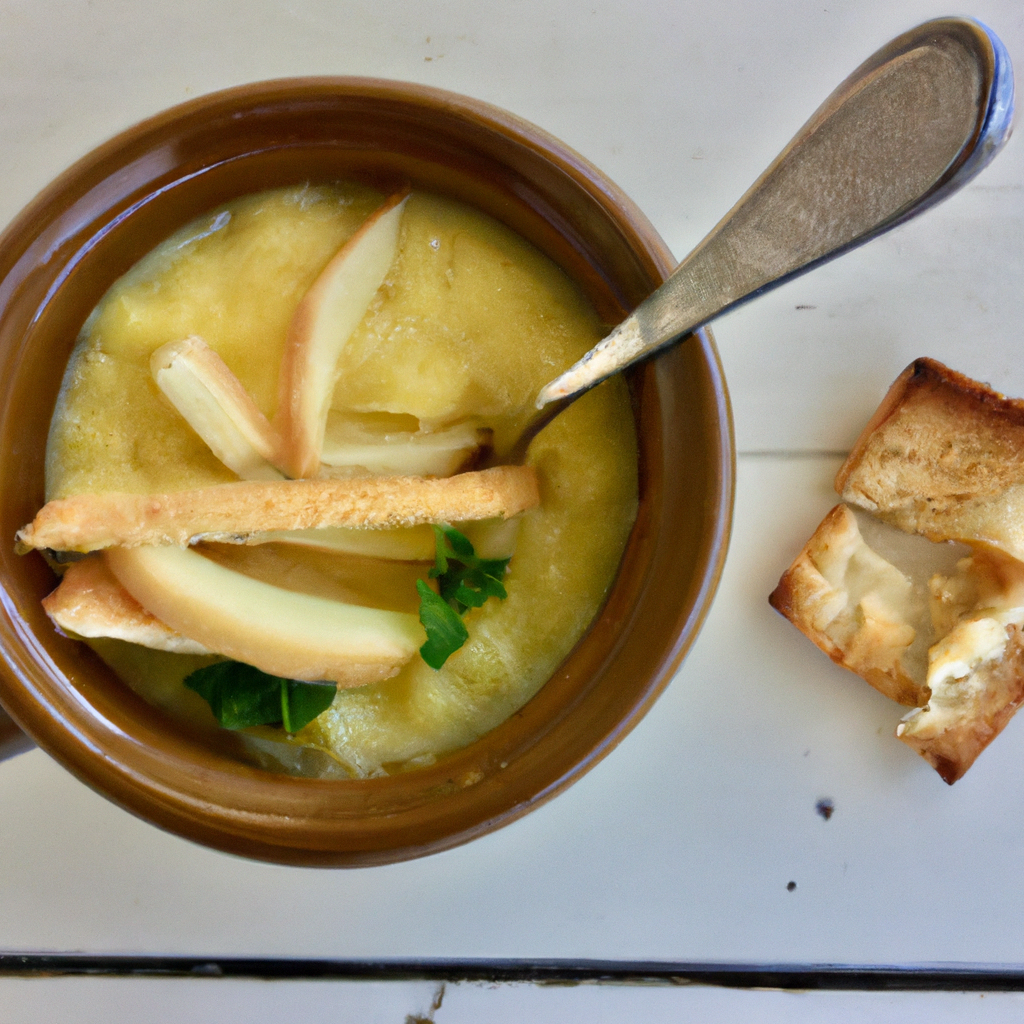When we think of our relationship with food, mindfulness is not always the first concept to come to mind. Yet eating in a mindful way has the potential to bring us a sense of calmness and contentment that can lead to a more profound appreciation for the meals we enjoy. From the mindful eating approach, we learn to cultivate an awareness of our bodies’ natural needs and to identify the sources of both genuine hunger and emotional triggers. This article will explore how mindful eating can produce an enhanced sense of joy and well-being in our meals.
1. Savoring Every Bite: The Art of Mindful Eating and the Pursuit of Joyful Meals
Eating is more than just nourishing the body—it’s nourishing the soul. Mindful eating isn’t just about enjoying every bite—it’s about the pursuit of joyous meals. Here’s why it’s an underrated practice:
- It discourages mindless snacking: Paying attention to eating habits helps to reduce overeating. Becoming aware of the physical signs of fullness, or why exactly you’re reaching for that extra snack helps to moderate consumption.
- It fosters appreciation: Mindful eating encourages you to pay attention to the aroma, texture, and flavor of food. It helps to slow down the meal process and reinforces how pleasurable eating can be.
- It builds relationships: Eating with friends and family can be a wonderful experience that bonds and strengthens relationships. A lot of this stems from slowing down and intentionally savoring each bite of a shared experience.
Beyond the process of eating, though, mindful eating helps to construction a joyful relationship with nourishment. It’s about knowing what foods bring you pleasure, as well as the presence of mind to actually enable yourself to savor it. In this manner, mindful eating is a practice of self-care.
This practice doesn’t require intricate knowledge of nutritional science, or even that much effort. A simple tweak like creating a warm and inviting environment may be enough to get started, even if it’s just a few candles and calming music.
Mindful eating can provide a plethora of physical and mental health benefits. Rekindling a love for food helps to prime the mind and body for a healthier relationship with eating. With mindful eating, you can discover that eating isn’t just an act of necessity—it can be the foundation for joyous meals.
2. Nurturing Your Body and Soul: The Transformative Power of Mindful Eating
Most of us are familiar with the concept of mindful eating, but many of us don’t truly understand its transformative power when fully practiced. Mindful eating can help you to appreciate food more and to eat in a way that nurtures your physical and emotional well-being. Here are a few tips to get you started on a journey to mindful eating:
- Take a few minutes to really consider your food. Smell it, look it and think about its origins.
- Acknowledge when you’re full. Eat until you’re satisfied, not stuffed, and don’t be afraid to stop mid-meal.
- Put away all distractions, like phones, laptops, and TVs. When you’re eating, focus on eating only.
Focusing on mindful eating doesn’t just benefit your physical and emotional health, but your mental well-being, too. Taking the time to savor your food and the experience of eating it can help to reduce stress and calm your body. As you become mindful of what you eat and aware of how it affects your body, you can begin to find a healthier, more meaningful relationship with food.
Mindful eating also allows you to appreciate and be grateful for the good food you eat. Be it a midnight snack after a stressing day, or a celebratory meal with loved ones, be thankful for the nourishment it provides both your body and soul. It is a reminder that you are worthy and that life can be both enjoyable and nourishing.
Finally, remember to be patient with yourself. Mindful eating takes practice and patience, especially as it is nearly impossible to remain mindful with every single meal. Focus on the present, enjoy the flavors and take time to acknowledge how the food you’re eating is benefiting you.
3. A Journey into Mindful Eating: Discovering the Pleasure and Wisdom in Every Meal
Mindful eating is a life-changing journey of discovery that can help us to live more mindful lives. Being mindful of our relationship with food helps us find pleasure and wisdom in every meal.
- Explore the flavors and textures: Experiment with different flavors and textures through mindful eating. Notice the aroma, taste and even the sound of each bite. Learn to appreciate the different nuances and complexity in each dish.
- Slow down: Our busy schedules often mean that our meals are eaten quickly. Practice slowing down and be mindful of the time it takes to chew and savor each bite. Notice how your body responds and take small pauses during meals.
- Eat mindfully: Ask yourself throughout the meal, “Am I enjoying this? Is this helping me with my hunger? Am I eating more out of boredom or stress? Am I eating too much or too little?” Listen to your body’s feedback and adjust accordingly.
Mindful eating can be a powerful way to nourish ourselves from the inside out. Take the time to truly appreciate all the food has to offer: the unique flavors, smells, textures and even the story behind each dish. Tune in and savor the moment and eventually, you’ll be able to identify and alter unhealthy eating patterns.
The key to mindful eating is experimenting and discovering your own individual needs. Find out what truly nourishes you and respect your own needs without judgment. This will help you form a healthier relationship with food.
Finally, be kind and patient with yourself. At the end of your journey, you’ll discover a greater appreciation for food and an inner wisdom to make better decisions and create healthy habits. Mindfully enjoy every bite.
4. Embracing Mindful Eating: Enhancing Awareness and Finding Joy in Food
Mindful eating is a practice that encourages a fuller and more holistic connection with the food we eat. It involves slowing down to appreciate the food’s textures, appearance, smells and tastes with an open mind and an undistracted approach. It also involves paying attention to the physical (e.g. hunger) and emotional (e.g. pleasure) signals our bodies are sending when eating. Here are some tips to help you embrace mindful eating to enhance your awareness and experience more joy in food:
- Understand how your body works. Instead of turning to food for comfort or as an unconscious reflex, learn to understand how your body responds to different foods. Paying attention to physical signals such as hunger, fullness, and digestion can help you understand how food affects your body and boundaries.
- Use your senses. Cultivating a sense of curiosity can turn meals into experiences. Take your time appreciating colors, smells, flavors, and texture of your food. Learning to identify subtle differences can help you become more aware of the foods you choose and how your body responds to them.
- Reduce distractions Even if you are eating quickly, you can still be mindful. Make time for meals and reduce distractions such as tv, phone, or other technology when you are eating. Enjoy eating without reading or talking on the phone.
- Look for joy Instead of creating rigid rules about food, find pleasure in the experience. Look for ways to nourish your body and soul with food that makes you feel good. Mindful eating is not about dieting or punishing yourself, it’s about finding joy in nourishment and reconnecting with your body.
These tips can help you become more mindful of your eating habits and the link between food and feelings. Mindful eating can help you develop healthier and more balanced eating habits, free from guilt and shame. Taking pleasure from food can be a powerful tool for connection and self-care.
By embracing mindful eating and cultivating awareness, you can create a stronger connection to what you eat and ultimately find more joy in food. This practice can serve as a reminder of the importance of nourishing yourself with what you need, and inspire you to treat your body with respect and kindness.
Mindful eating offers insight into our relationships with food and encourages us to be aware of how we fuel our body. When practiced, it can help us find new joy in the experience of eating and can also help us develop healthier habits and create a healthier relationship with food. Becoming aware of our mealtime choices and the experience of eating can lead to a more mindful, healthier lifestyle.



